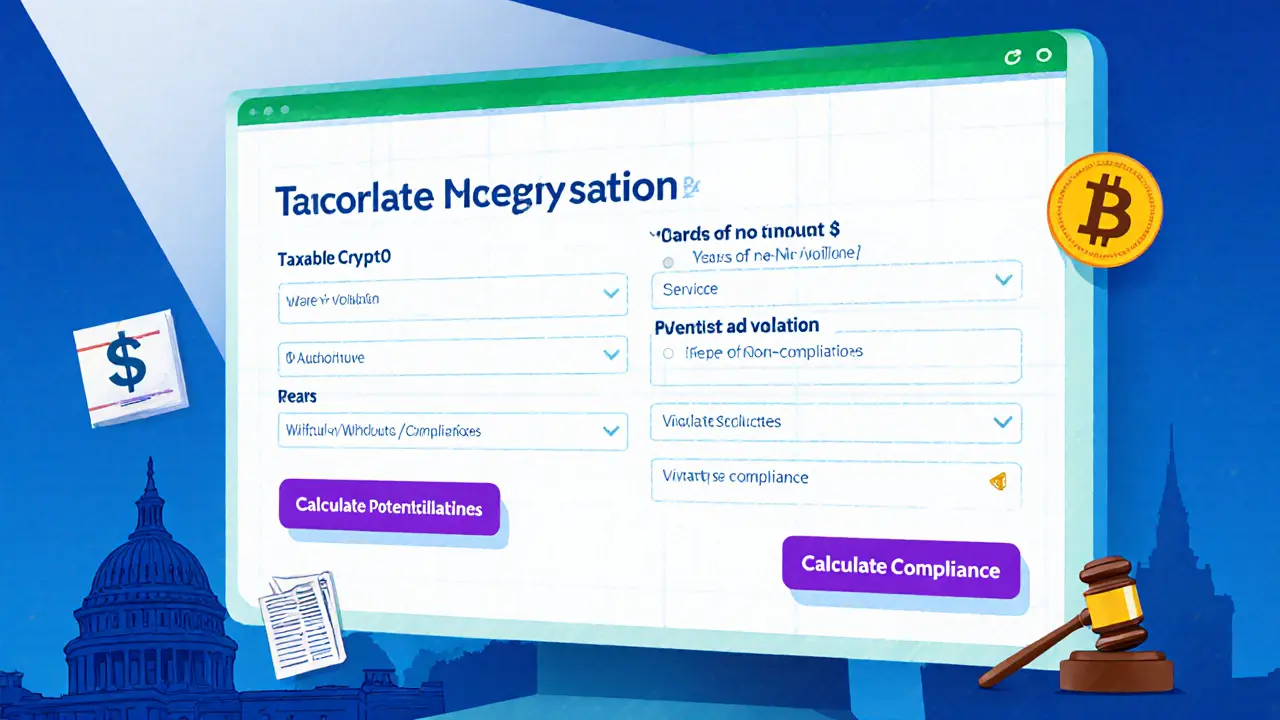Cryptocurrency Tax Crimes: What You Need to Know
When dealing with Cryptocurrency Tax Crimes, illegal actions that avoid taxes on digital assets or use crypto to hide illicit income. Also known as crypto tax fraud, it poses serious legal and financial risks for anyone handling crypto.
Tax Evasion, the deliberate under‑reporting of crypto gains or falsifying transaction records sits at the heart of crypto tax crimes. The tax code treats crypto like property, so failing to declare every sale, swap, or airdrop is a clear violation. In practice, evaders often claim a lower cost basis, hide wallet addresses, or use offshore mixers. The result is a hidden profit stream that tax authorities scramble to trace. Cryptocurrency tax crimes therefore encompass tax evasion, because avoiding taxes directly fuels the illegal activity.
Money Laundering, the process of making illegally gained crypto appear legitimate amplifies the problem. Criminals swap stolen coins for stablecoins, funnel them through multiple exchanges, and finally cash out as clean fiat. This layering step blurs the money trail, making it harder for auditors to spot missed taxes. When money laundering intertwines with tax evasion, regulators see a compounded threat: not only is revenue lost, but the financial system is contaminated. Money laundering influences cryptocurrency tax crimes by providing the means to disguise taxable events.
Regulatory Enforcement, government actions, fines, and investigations targeting crypto tax violations is the counterbalance that keeps the market honest. Agencies like the IRS, EU tax authorities, and local tax bureaus now require detailed transaction reports and KYC information from exchanges. Enforcement actions often start with AML/KYC checks, then move to audit individual wallets for undeclared gains. The link is clear: regulatory enforcement requires robust AML compliance, and strong compliance reduces the space for tax evasion and money laundering. In other words, effective enforcement curtails cryptocurrency tax crimes.
Key Aspects of Cryptocurrency Tax Crimes
Understanding the mechanics helps you stay on the right side of the law. First, track every crypto move—trades, swaps, staking rewards, airdrops, and even crypto‑paid purchases. Second, calculate the fair market value at the moment of each transaction to determine your taxable gain or loss. Third, keep receipts and wallet statements for at least seven years; auditors rely on these documents to verify your reports. Finally, use compliant exchanges that perform thorough KYC and report transaction data to tax authorities. By treating each step as a piece of a larger compliance puzzle, you reduce the chance of slipping into tax evasion or becoming a conduit for money laundering.
The articles below dive deeper into real‑world cases, country‑specific rules, and practical tools you can use to audit your own crypto activity. Whether you’re a casual trader, a professional investor, or an exchange operator, the collection gives you actionable insight into spotting, preventing, and navigating cryptocurrency tax crimes.
Learn how crypto tax evasion can lead to up to 5 years in prison and $250,000 fines, the IRS's enforcement tools, penalties, and practical steps to stay compliant.



 Finance
Finance




